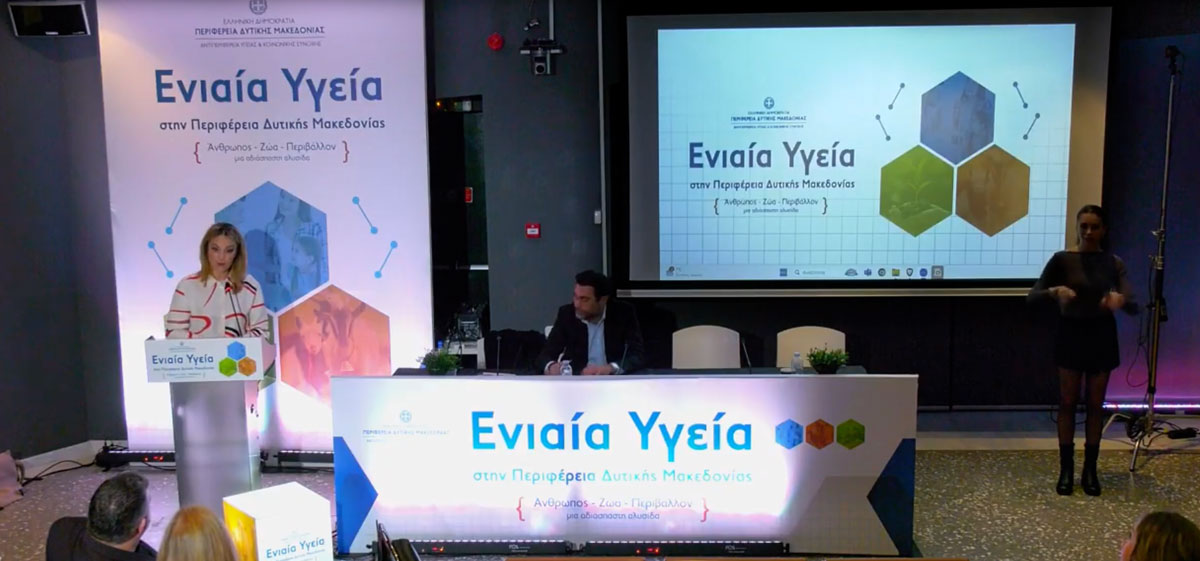Scientific Director for sheep and goat Plague at the Veterinary Laboratories of Larissa the elected Associate Professor of Veterinary Medicine Giorgos Valiakos (MED – OHC)
Scientific Director for sheep and goat Plague at the Veterinary Laboratories of Larissa the elected Associate Professor of Veterinary Medicine Giorgos Valiakos (MED – OHC)
Elected Associate Professor of Veterinary Medicine at the University of Thessaly and member of the Scientific Council of the “Mediterranean One Health Innovation Center” (MED – OHC) Giorgos Valiakos, was appointed as the Scientific Director for sheep and goat Plague at the Veterinary Laboratories of Larissa in Thessaly.
At a press conference on Wednesday, September 11th, in the Meeting Room of the Region of Thessaly, Dr. Valiakos explained the operational procedures of the regional Centre in the collection and examination of samples, noting, among other things, that “this is a method of immediate sample testing, which was completed in a very short time without compromising the quality of the examinations.
We reached the point where we could have test results within 5 to 24 hours,” while adding that the testing procedure followed was “unprecedented,” resulting in many European countries being informed about our operational approach.
In the same press conference, the Regional Governor of Thessaly, Dimitris Kouretas, emphasized that “so far, 1,655 farms have been tested throughout Thessaly, and 630,000 animals have been traced, which is approximately one-third of Thessaly’s livestock. Sampling was conducted on 6,500 animals, and 25,000 samples were taken. In the past month, three farms tested positive.
The last positive sample was two weeks ago, so if things continue this way, I believe we will soon be able to lift the system restrictions.
We are collecting thousands of samples, allowing us to cover operations everywhere without any gaps, which is of great importance. If we didn’t have this regional control center that we established and relied solely on the National Center, we would have tested only one-fifth of these samples.
The estimate is that by October 8th, we will have eradicated the plague. However, we will continue surveillance with consistency and diligence, as during the winter months, there may be a resurgence of outbreaks.”
The Deputy Regional Governor for the Primary Sector, Dimitris Tsetsilas, referred to the efforts concerning the financial support for livestock farmers who used animal feed while their animals were confined, noting that “the Region of Thessaly has communicated with the Ministry of Rural Development and Food and is pressing for compensation for the producers.”
The Director of Agricultural Economy for the Region of Thessaly, Dimitrios Stavridis, characterized the actions of the Region of Thessaly during this period as unprecedented, resulting in the area being “cleared very quickly.” As he noted, “We have received praise from European organizations for the swift manner in which we acted.”
The Head of the Veterinary Directorate, Athanasios Konstantinidis, referred to the effective management of the plague by the Region of Thessaly, which saved the livestock population.
“We are managing the plague daily with ten teams working in the field. Samples from 70-100 animals are sent to the lab daily.
We receive results within 24 hours, so we have immediate knowledge of what is happening in the zones at any given time.
At this point, we have checked the surveillance zones for the third and fourth time to ensure that we surpass the incubation periods and nothing escapes our attention. With the decision of the Governor, Dimitris Kouretas, we implemented strict safety protocols, and I believe that the developments have justified us.”
The Director of the Veterinary Laboratory, Mrs. Athanasia Stournara, thanked the Region of Thessaly for promptly and willingly addressing the shortages in the Veterinary Laboratory.




